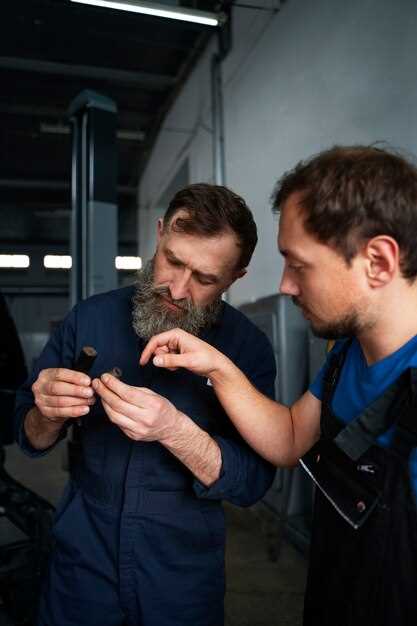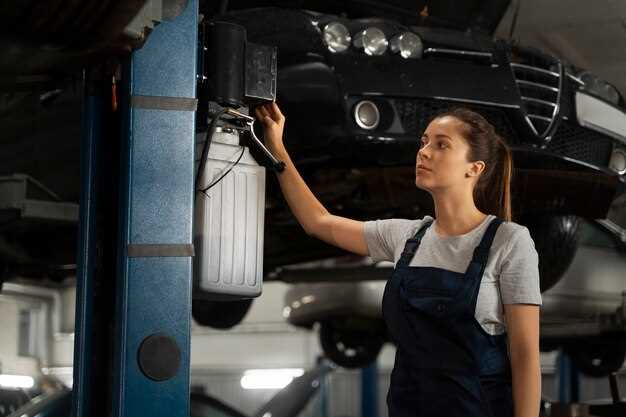
When it comes to luxury vehicles, few brands can match the prestige and engineering excellence of Mercedes-Benz. However, owning a Mercedes means understanding the unique aspects of its maintenance. Unlike standard vehicles, Mercedes-Benz cars require specialized care that reflects their advanced technology and high-performance standards.
One of the most notable features of Mercedes-Benz maintenance is the emphasis on using genuine parts and fluids. These components are specifically designed to work seamlessly with the intricate systems within Mercedes vehicles, ensuring optimal performance and longevity. Using non-genuine parts can lead to complications, diminishing the vehicle’s reliability and potentially voiding warranties.
Additionally, the maintenance schedules for Mercedes-Benz models are tailored to the specific needs of each vehicle. Features such as the Flexible Service System offer personalized recommendations based on driving habits, ensuring that critical services are performed at the right intervals. This customization enhances both performance and safety, allowing drivers to enjoy their luxury experience without worry.
Finally, the expertise of certified technicians is indispensable in maintaining the sophisticated systems of Mercedes vehicles. These professionals undergo rigorous training and are equipped with specialized tools, ensuring that every service is performed to the highest standards. Investing in proper maintenance not only preserves the vehicle’s luxury status but also maximizes its resale value.
Understanding the Mercedes-Benz Maintenance Schedule
Maintaining your Mercedes-Benz is crucial for ensuring optimum performance, longevity, and safety. The maintenance schedule is meticulously designed to address the specific needs of each model, and understanding it can help owners keep their vehicles in peak condition.
The maintenance schedule is generally divided into two types of services: A-Service and B-Service. These services are performed at intervals based on time or mileage, whichever comes first. Here’s a breakdown of what these services typically include:
- A-Service:
- Oil change with quality Mercedes-Benz approved synthetic oil.
- Replace oil filter.
- Inspect brake pads, discs, and fluid levels.
- Check tire pressure and tread depth.
- Inspect the exterior lights and wipers.
- Perform a general vehicle inspection for any warning signs.
- B-Service:
- All A-Service tasks.
- Replace cabin air filter and fuel filter as needed.
- Inspect and replace fluids such as coolant and transmission fluid if necessary.
- Check battery health and charging system.
- Examine suspension components for wear.
In addition to A and B Services, additional maintenance tasks are periodically required to keep the vehicle running smoothly:
- Fluid changes (coolant, transmission, differential).
- Tire rotation and balancing every 5,000 to 8,000 miles.
- Brake system inspections annually or every 10,000 miles.
- Timing belt or chain replacement based on mileage; refer to your owner’s manual.
- Battery maintenance, with checks being essential in extreme temperatures.
Owners should always refer to the owner’s manual for the specific maintenance schedule tailored to their particular model and year. This manual provides detailed timelines and recommendations based on driving conditions and personal usage patterns.
Adhering to the Mercedes-Benz maintenance schedule not only helps in preserving the vehicle’s performance and resale value but also fulfills warranty requirements and promotes safety on the road.
Utilizing Genuine Parts vs. Aftermarket Alternatives

When it comes to maintaining a Mercedes-Benz, one of the most critical decisions owners face is whether to use genuine parts or opt for aftermarket alternatives. Both options present distinct advantages and disadvantages that can significantly affect the vehicle’s performance and longevity.
Genuine Parts are manufactured by Mercedes-Benz or its authorized suppliers. They are designed specifically for each model, ensuring perfect compatibility and adherence to the manufacturer’s standards. Utilizing genuine parts can enhance the overall reliability of the vehicle, as they undergo rigorous testing to meet quality control benchmarks. Additionally, using these parts often helps maintain the warranty on the vehicle, ensuring that any future claims are honored.
Furthermore, genuine parts are typically backed by a warranty, providing peace of mind to the owner. This warranty can cover a specific period or mileage, allowing drivers to replace or repair parts without incurring additional costs. The resale value of a vehicle with documented use of genuine parts can also be higher, as potential buyers often prefer cars that have been maintained with original components.
On the other hand, Aftermarket Alternatives are parts produced by third-party manufacturers that may lack the stringent quality controls of genuine parts. These components can vary widely in terms of quality and performance. While they typically come at a lower price point, this cost-effectiveness can sometimes come at the expense of durability and fit. Some aftermarket components may not perform as well as their genuine counterparts, potentially leading to mechanical issues down the line.
Nonetheless, aftermarket parts can be a practical choice for certain maintenance and repair tasks, particularly when genuine alternatives are prohibitively expensive or unavailable. Many reputable aftermarket brands produce high-quality components that can meet or even exceed the specifications of genuine parts. It is essential for owners to research and select trustworthy aftermarket options to mitigate potential risks.
Ultimately, the decision between utilizing genuine parts and aftermarket alternatives depends on individual circumstances, including budget, the critical nature of the part in question, and personal preference. For crucial components affecting safety and performance, many experts recommend opting for genuine parts, while more minor repairs may be adequately serviced with reliable aftermarket alternatives.
Specialized Tools and Technologies for Mercedes-Benz Servicing

When servicing a Mercedes-Benz vehicle, the use of specialized tools and technologies is essential to ensure precision and maintain the vehicle’s integrity. These tools are designed specifically for the unique engineering and features of Mercedes-Benz automobiles, enabling technicians to perform repairs and preventive maintenance efficiently.
One critical category of tools is the diagnostic equipment, which allows technicians to interface with the vehicle’s onboard computer systems. The Mercedes-Benz Star Diagnostic System (Xentry) is a state-of-the-art tool that provides comprehensive diagnostics, enabling the identification of issues ranging from engine performance to electronic malfunctions. This tool updates regularly to include the latest models, ensuring accurate readings and troubleshooting guidance.
Specialized hand tools, tailored to the specifications of Mercedes-Benz vehicles, are also vital. These include specialized wrenches, screwdrivers, and torque tools that correspond to the precise fasteners and components used in these vehicles. This ensures that repairs are performed without causing damage and that components are tightened to the manufacturer’s specifications.
Furthermore, Mercedes-Benz employs specific maintenance technologies such as the Mercedes-Benz Maintenance System (MBMS), which assists in tracking service schedules and recommends necessary maintenance based on actual vehicle usage patterns. This system integrates with the vehicle’s computer, ensuring that timely service is performed based on advanced data analysis rather than arbitrary intervals.
Another notable innovation is the use of advanced repair technologies like laser wheel alignment systems and 3D scanning for bodywork repairs. These technologies enhance accuracy and efficiency in aligning wheels and restoring the structural integrity of the vehicle after accidents, thus maintaining optimal performance and safety.
In addition, Mercedes-Benz dealerships utilize proprietary fluid exchange and replenishment systems. These systems are designed to manage the unique fluid needs of each model, ensuring that oil changes, coolant exchanges, and transmission fluid services meet high standards that the brand is known for, facilitating optimal vehicle performance.
Ultimately, the combination of specialized tools and advanced technologies ensures that Mercedes-Benz vehicles receive the high-quality service they demand and deserve, helping to extend their longevity and enhance driver satisfaction.




